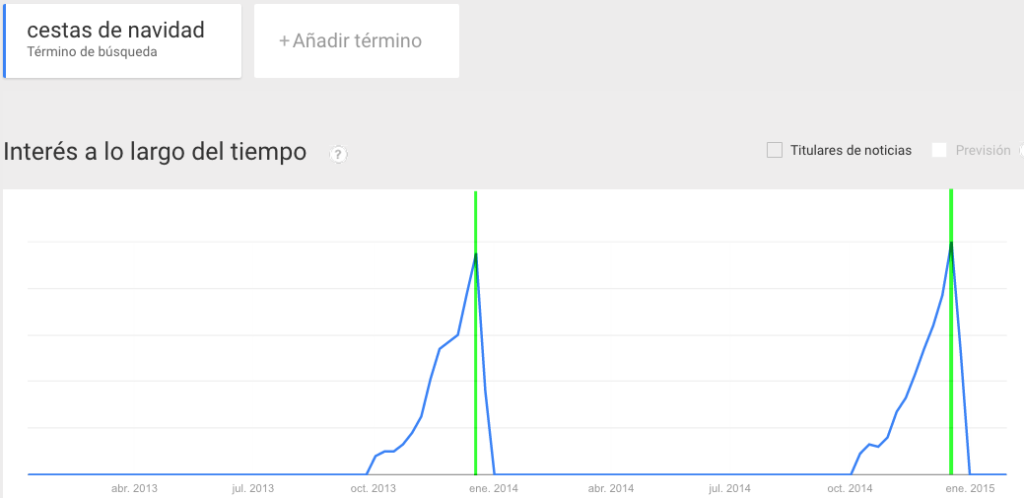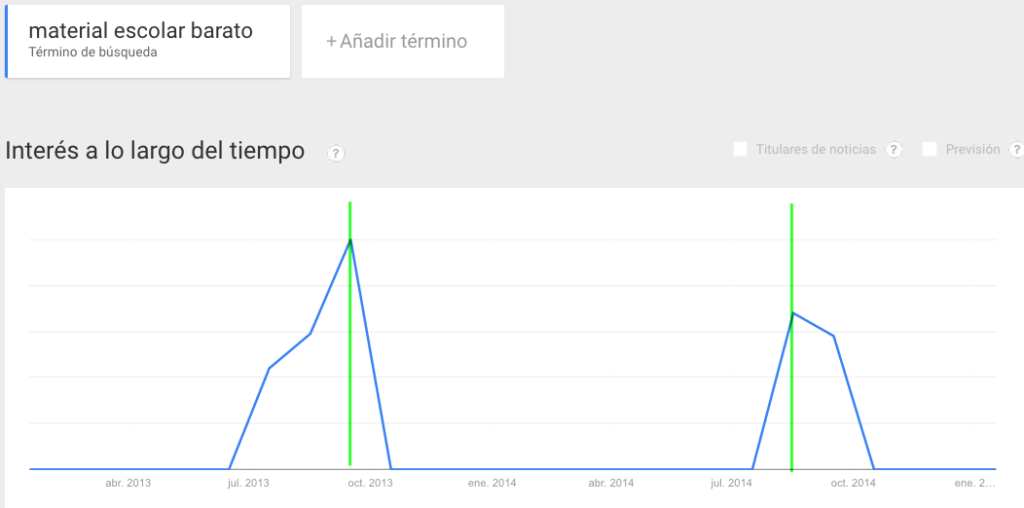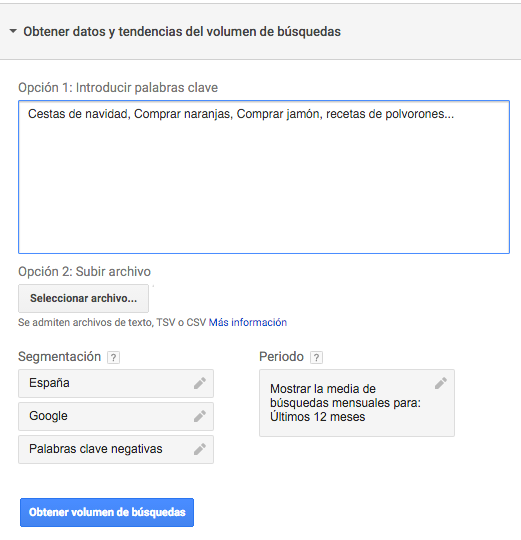Written by Fani Sánchez
Index
What is seasonality?
Seasonality is a factor that relates the increased demand for keyword searches to a specific time period, whether annual, monthly, weekly or hourly.
There are many keywords that have a seasonality component, because they respond to needs that are more in demand in one period of time than another. They may comprise search phrases corresponding to a wide range of products or services, such as:
- Food products: Christmas baskets, Buy oranges, Buy ham, Polvorones recipes…
- Leisure: Valentine’s Day getaways, organized end-of-year trips, summer camps…
- Other consumer products: Cheap school supplies, leather sandals, cheap bikinis…
Seasonality in your SEO strategy
Seasonality is a factor that we must take into account when designing the SEO strategy of our site, because if we know it well we can use it to our advantage.
For example, if we have an online food and gourmet products store, we should know that searches for “Christmas baskets” or “buy ham” increase during the Christmas season. Taking into account this consideration, it would be advisable to upload in the architecture the pages we have dedicated to these products, for example, with a link in the home page from a banner promoting Christmas baskets.
If we are dedicated to the pest control sector and we know that the pine processionary season starts in March, during February we should already promote these products in our Online Marketing strategy and raise it in the web architecture.
Find out more about how to manage your online store’s information architecture for seasonal demand products here.
Tools to check keyword seasonality
Google Trends for Searches
Trends for Searches is Google’s tool for exploring search trends on the Internet. It has a very large database of search locations, has a history of data since 2004 and also offers real-time data. You can compare several search terms for the same location or the same term from different locations, as well as compare time periods.
After getting to know this tool a little better, we can use it to know the seasonality of some of the words we mentioned as an example above:
The seasonality for the term “Christmas baskets” is evidently annual, with searches concentrated in the last days of December and first days of January of each year.
The seasonality of the term “cheap school supplies” is centered on the months of July, August, September and October, with the peak of demand in September, coinciding with the beginning of the school or university year.
The strength of this tool is that, based on the data it has collected over the last few years for a keyword, it gives us a prediction of its trend in the coming months, which is something you should not overlook. You can do this by checking the “Forecast” box above the graphs.
Google Keyword Planner
Google Keyword Planner is a traffic estimation tool with great segmentation power. It has statistics by geographic location, language or device, among others. It is initially intended for setting up your Google AdWords campaigns but you can make use of it to find out the search seasonality of your keywords.
We enter the tool and enter the keywords we want to check in the “Get search volume data and trends” dropdown, separated by commas. We must make sure that the language and location are well configured for our target audience.
Then we will get our data and if we put the cursor over the graph icon, a new window will appear with the statistical data of our word for the last 12 months. In the example we can see that “Christmas baskets” have their peak search in December, with October and November also being months where interest is already beginning to grow.
SEMRush
The SEMRush tool will offer you the same data since it extracts the information from the Google AdWords keyword planner. You will find this information in the “Trend” module after you have entered your keyword in the box.



